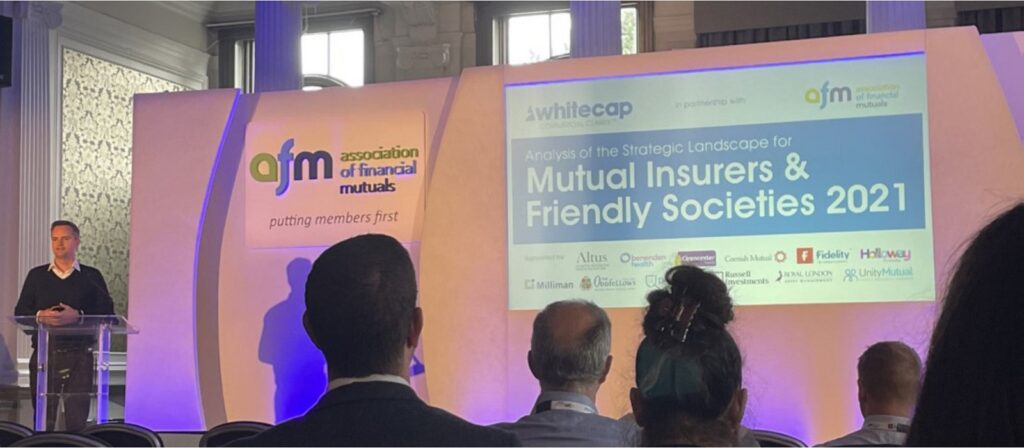We are pleased to share this latest guest blog which was written by Teddy Nyahasha, Chief Executive at ICMIF member OneFamily (UK). Our thanks to Teddy for his permission to share his article with other ICMIF members.
I recently spoke at the Building Societies Annual Conference in Liverpool (UK), a city known for the impressive Royal Liver Building. Liverpool was at the heart of the development of the friendly society – offering a way to pool risk and provide support to their members at a time when there was no such thing as a welfare system.
I was at the conference, as CEO of the friendly society OneFamily, to talk about mutual businesses in our post-pandemic world.
My opener was that things were already tough enough before the pandemic hit. There were massive challenges; the climate crisis, the country’s over-reliance on foodbanks, a greater life expectancy and a lack of social mobility. Irrespective of Covid, the urgency and importance of these challenges continue, and will do so for many decades to come.
Then Covid hit us, which necessitated putting the country on what has often been described as a “war footing”. As with the economic consequences of wartime, we’re now seeing inflation rising rapidly. And higher living costs combined with rapidly devaluing savings are hitting families hard.
People are hurting. No-one wants to have to decide between heating and eating or having to skip meals so they can feed their children. This is a brutal situation, which will only get worse as we head towards the winter months again.
So how can the mutual sector help to bring about lasting change?
Mutuals were the original crowd-funders – helping members to provide for their futures, irrespective of their financial position. Today’s version of mutuality still supports its members but also seeks financial inclusion, to enable everyone to have the same opportunities – regardless of their wealth or who they are. We’re here to serve the underserved, the marginalised and excluded.
For example, at OneFamily we have fought for the rights of children who lack mental capacity to find a way to ensure that they’re able to access their savings without unnecessarily difficult legal barriers being thrown in their way. We’ve campaigned hard for a change in the law that recognises and puts right the unfairness that they currently face.
We choose to serve everyone, to reach the whole of the market – not just the profitable bits. We’ve undertaken research and focused our innovation on products for those in the mid-lower income bracket and not those with the greatest wealth. So, it’s possible to enjoy the benefits of investing in the stock-market for just GBP 10 per month and save for the future with a straight-forward climate-friendly product that can be managed without the need of an investment expert.
I think technology is going to be a key tool in financial inclusion, making it easier and less daunting to manage money. Giving improved access allows people more control over their own financial wellbeing. Empowerment is right there, simply through a tap on the screen of a smartphone.
Throughout history mutuals have faced the challenges of their time. They’ve shown they’re fleet of foot and are unafraid to be bold, to be positive and to think creatively to support their members – whether that’s pooling risk, campaigning for change or embracing technology. These are the qualities that will be needed if society is to progress forward and secure a stable and lasting recovery for the country following the last few hard years.
Modern mutuality could be just the driving force that this country, and indeed the world, needs right now.






